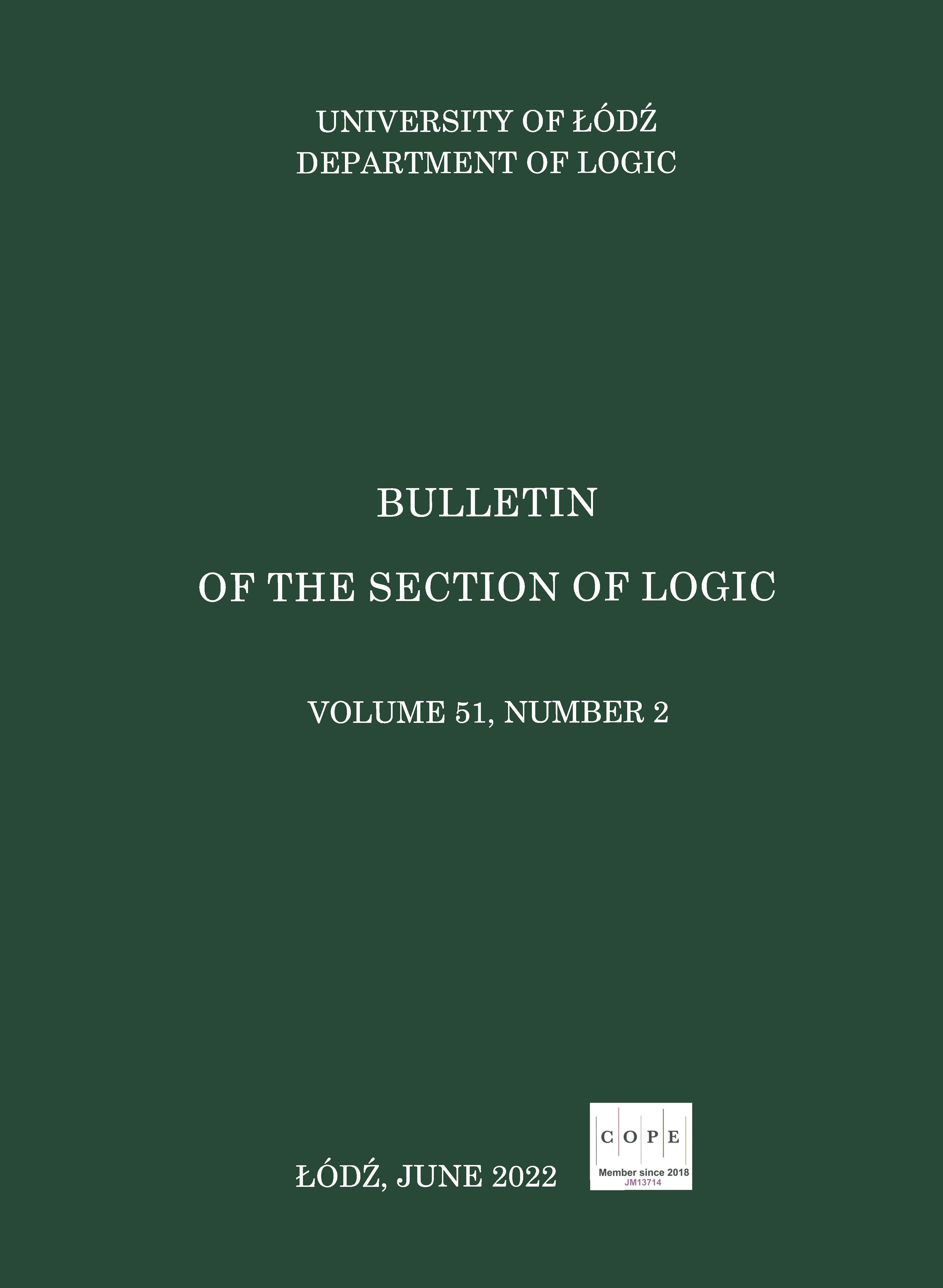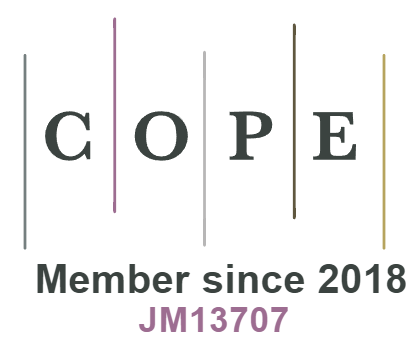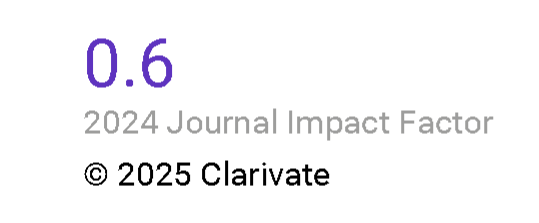A Classification of Improper Inference Rules
DOI:
https://doi.org/10.18778/0138-0680.2022.12Keywords:
sequent system, improper inference rule, natural deductionAbstract
In the natural deduction system for classical propositional logic given by G. Gentzen, there are some inference rules with assumptions discharged by the rule. D. Prawitz calls such inference rules improper as opposed to proper ones. Improper inference rules are more complicated than proper ones and more difficult to understand. In 2022, we provided a sequent system based solely on the application of proper rules. In the present paper, on the basis of our system from 2022, we classify improper inference rules.
References
W. Breckenridge, O. Magidor, Arbitrary reference, Philosophical Studies, vol. 158(3) (2012), pp. 377–400, DOI: https://doi.org/10.1007/s11098-010-9676-z.
Google Scholar
DOI: https://doi.org/10.1007/s11098-010-9676-z
A. Chagrov, M. Zakharyaschev, vol. 35 of Oxford Logic Guides, Clarendon Press, New York.
Google Scholar
K. Fine, Reasoning with arbitrary objects, vol. 3 of Aristotelian Society Series, Oxford University Press, New York (1985).
Google Scholar
G. Gentzen, Untersuchungen über das logisch Schließen, Mathematische Zeitschrift, vol. 39 (1934–35), pp. 176–210, 405–431, DOI:
Google Scholar
DOI: https://doi.org/10.1007/BF01201363
https://doi.org/10.1007/BF01201353.
Google Scholar
DOI: https://doi.org/10.1007/BF01201353
P. Hertz, Über Axiomensysteme für beliebige Satzsysteme, Mathematische Annalen, vol. 101 (1929), pp. 457–514, DOI:
Google Scholar
DOI: https://doi.org/10.1007/BF01454856
https://doi.org/10.1007/BF01454856.
Google Scholar
DOI: https://doi.org/10.1007/BF01454856
A. Indrzejczak, A Survey of Nonstandard Sequent Calculi, Studia Logica, vol. 102 (2014), pp. 1295–1322, DOI: https://doi.org/10.1007/s11225-014-9567-y.
Google Scholar
DOI: https://doi.org/10.1007/s11225-014-9567-y
D. Prawitz, Natural Deduction: A Proof-Theoretical Study, Almqvist & Wiksell, Stockholm (1965).
Google Scholar
K. Robering, Ackermann’s Implication for Typefree Logic, Journal of Logic and Computation, vol. 11(1) (2001), pp. 5–23, DOI:
Google Scholar
DOI: https://doi.org/10.1093/logcom/11.1.5
https://doi.org/10.1093/logcom/11.1.5.
Google Scholar
DOI: https://doi.org/10.1093/logcom/11.1.5
K. Sasaki, A sequent system without improper derivations, The Bulletin of Symbolic Logic, vol. 51(1) (2022), pp. 91–108, DOI:
Google Scholar
DOI: https://doi.org/10.18778/0138-0680.2021.21
https://doi.org/10.18778/0138-0680.2021.21.
Google Scholar
DOI: https://doi.org/10.18778/0138-0680.2021.21
P. Schroeder-Heister, Resolution and the Origins of Structural Reasoning: Early Proof-Theoretic Ideas of Hertz and Gentzen, The
Google Scholar
Bulletin of Symbolic Logic, vol. 8 (2002), pp. 246–265.
Google Scholar
DOI: https://doi.org/10.2178/bsl/1182353872
R. Suszko, W sprawie logiki bez aksjomatów, Kwartalnik Filozoficzny, vol. 17 (1948), pp. 199–205.
Google Scholar
R. Suszko, Formalna teoria wartości logicznych, Studia Logica, vol. 6 (1957), pp. 145–320, DOI: https://doi.org/10.1007/BF02547932.
Google Scholar
DOI: https://doi.org/10.1007/BF02547932
Downloads
Published
How to Cite
Issue
Section
License

This work is licensed under a Creative Commons Attribution-NonCommercial-NoDerivatives 4.0 International License.















